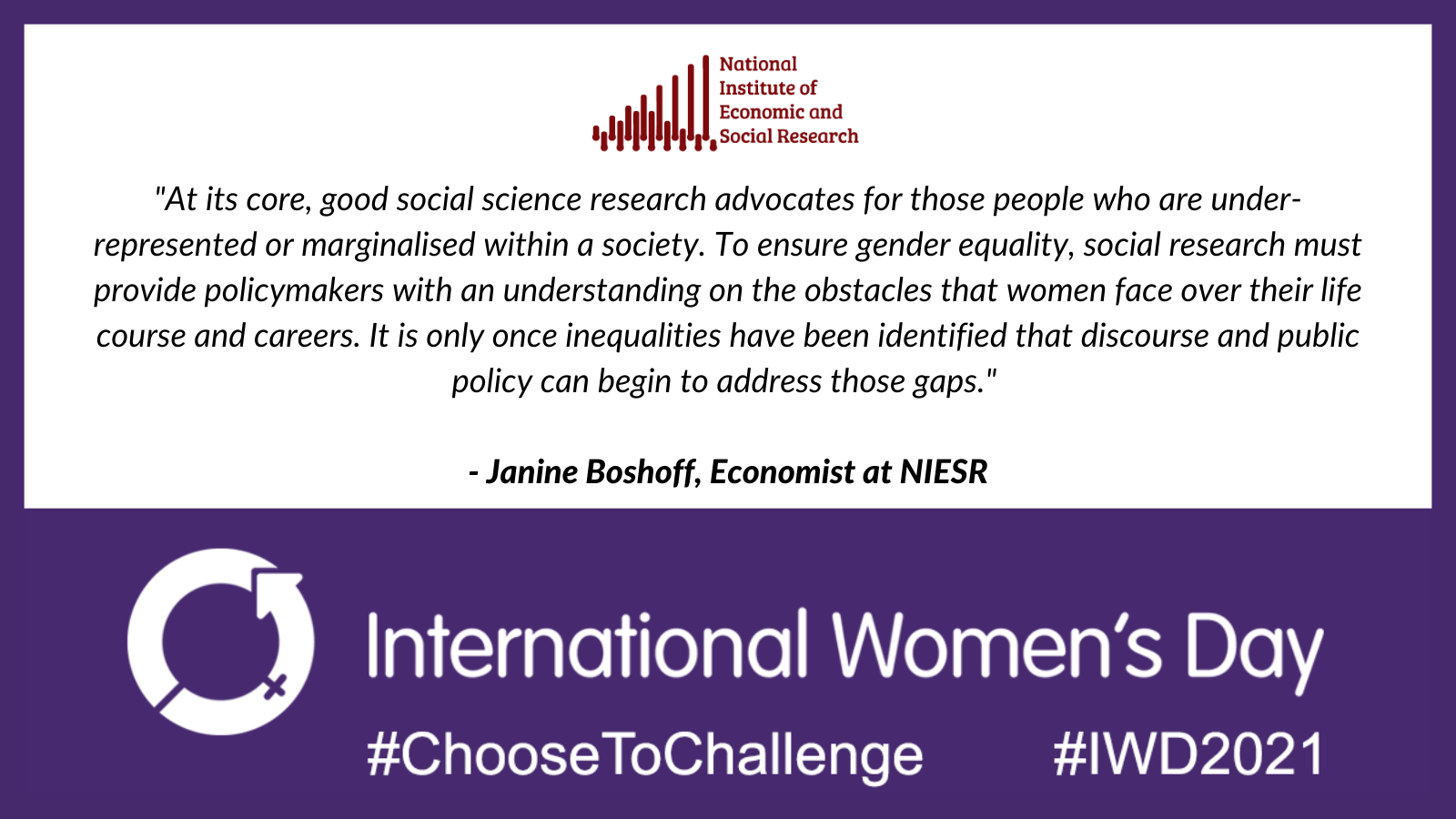International Women’s Day 2021 at NIESR: Janine Boshoff
The theme for International Women’s Day (IWD) 2021 is #ChooseToChallenge, asking us to “Celebrate women’s achievement. Raise awareness against bias. Take action for equality.”.

The theme for International Women’s Day (IWD) 2021 is #ChooseToChallenge, asking us to “Celebrate women’s achievement. Raise awareness against bias. Take action for equality.”.
To celebrate IWD at the National Institute of Economic and Social Research (NIESR), we are publishing a series of Q&A blogs written by women at NIESR to explore various topics to celebrate their achievements, including the challenges and barriers they have overcome. We hope these blogs raise awareness against bias and encourage us all to take action for equality.
Janine Boshoff is a member of the Macroeconomic Modelling and Forecasting Team at NIESR. She has a background in monetary policy research and econometric modelling, but is interested in the application of econometric techniques across a wide variety of research questions. Her research interests include health and education economics, with applications related to poverty alleviation in developing countries.
How long have you worked at NIESR, and what does your role involve?
I joined NIESR in March 2019 as an Economist in the Macroeconomic Modelling and Forecasting Team, which is responsible for producing quarterly forecasts and analysis on the UK and the world economy. I also work flexibly on other research projects related to the transition out of low-pay, youth unemployment, and inequalities in education and labour market outcomes.
What are you currently working on at NIESR?
One project that I am especially excited about is research to understand the factors that influence a young person to leave post-16 education early, the effectiveness of the support measures in place, and how this has changed during the pandemic.
As part of the research, we are conducting interviews with experts who work in organisations and charities that support young people to stay in education. Even in these difficult times, these men and women are going above-and-beyond to support young people to stay in education and improve their prospects in future. I’ve found their compassion and enthusiasm for their work so inspiring, and it has been a source of optimism for me in these uncertain times.
What role can social science research play in achieving gender equality?
At its core, good social science research advocates for those people who are under-represented or marginalised within a society. To ensure gender equality, social research must provide policymakers with an understanding on the obstacles that women face over their life course and careers. It is only once inequalities have been identified that discourse and public policy can begin to address those gaps.